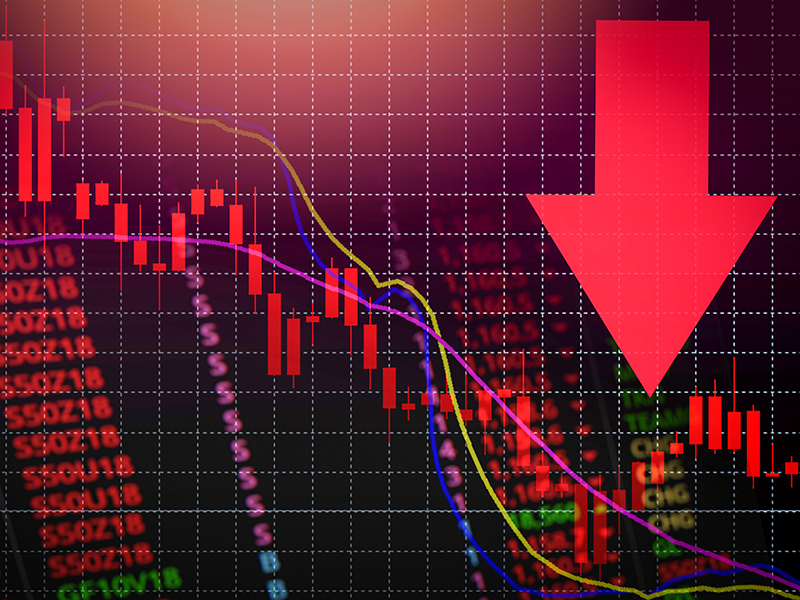Deflation: A multi-headed demon that hurts economies and investments
When the growth engine slows down, income levels for corporates and households are adversely impacted
 Image: Shutterstock
Image: Shutterstock
Nishant Gupta & Anil Ghelani
In India, we are so used to seeing inflation as the key enemy that everyone takes efforts to keep it under control. Deflation has remained simply a term we learn about in our study material – the state of an economy in which it faces a slower growth and lower inflation. During deflation, we see demand in the economy nosediving, since less money chases more goods, prices come down. With expectations of declining prices, people withhold their demand and defer purchases, as they expect a further fall in prices.
How deflation affects businesses
To understand more clearly, let us take an example of a debt-free consumer facing business. To make higher profits, the company needs to sell more products at higher prices so that the revenues of the company are higher than the overall cost. This is possible in times when the overall growth is strong and consumer spending is high. On the contrary, when growth slows down, the company is unable to sell more products (lower demand), and the selling price might also come down (lower inflation). As the revenues come down and costs remain the same, the company makes lower profits. Lower profits could curtail investments for future growth and also reduce payouts to shareholders.
Let us add a twist in the above example of a consumer company and say this same firm was not debt-free, but had a large component of borrowed funds. So, the company faces a problem of high debt and fall in profits. From an investor's point of view, he/she starts thinking on various grounds. How would the company be able to service the debt? Is the company going to survive? Should I hold on to the company's shares? Deflation is a phase where a good company may start to look bad and a leveraged company may start its journey towards bankruptcy.
The same analogy can be extended from a consumer facing company, to a nation's economy.
Extending the company logic to the overall economy
Every economy has an annual budget where the revenues and expenditures are outlined for the next year. The revenues have to be projected in line with expenditures, or else the economy would face a fiscal deficit and the government has to borrow to bridge this gap.
The world currently faces the problem of rising deficits. Since the beginning of the COVID-19 crisis, many economies have been in lockdown, global trades have been affected negatively, growth has slowed down (IMF projects world GDP to grow by -4.9% in 2020), unemployment levels have increased, and consumption and inflation have collapsed. It appears that the entire global economy has slipped into a state of “deflation.”
Some might think that it is good not to have inflation. But this is not good because deflation is a bigger demon. Let us see how it can cause greater problems and why it is a long-standing rival of Governments and Central Banks.
When the growth engine slows down, income levels for corporates and households are adversely impacted, causing a lower velocity of trades within an economy. This results in reduced direct and indirect tax collection for the government. As the government's revenues come down, it needs to borrow more, which leads to an increase in the debt to GDP ratio and enhanced possibility of sovereign rating downgrade. Net national savings (sum of savings from households, corporates and governments) gets impacted adversely, which affects the debt servicing capabilities, thereby causing bankruptcies and, at some stage, the potential for social unrest. In the financial markets, investors become risk averse and flows tend to move out of all risk assets into cash. Lastly, the impact is also visible on the banking system, where write offs of loans affects the equity capital of banks and restricts their capability to lend further.
A prudent approach from governments and central banks can help keep deflation under control with some fiscal stimulus measures, coupled with suitable monetary policy actions.
(Nishant Gupta is Senior Manager-Product Management & Anil Ghelani is Head of Passive Investments & Products, at DSP Mutual Fund)
Original Source: https://www.moneycontrol.com/news/business/personal-finance/deflation-a-multi-headed-demon-that-hurts-economies-and-investments-5480581.html